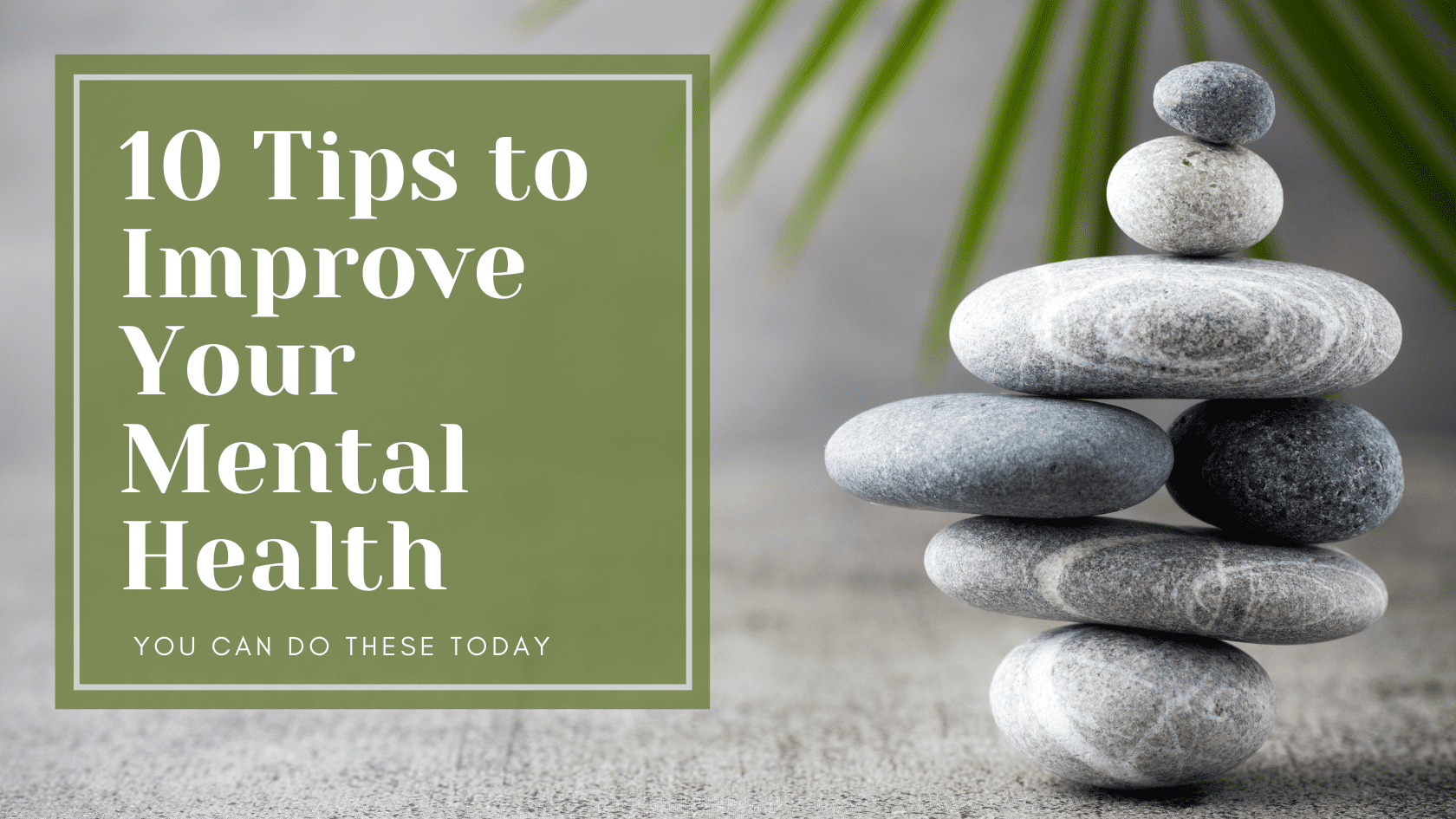Improving mental health is crucial for living a happy and fulfilling life. However, it can be tough to know where to start. This article outlines ten simple tips to improve your mental health. Prioritizing sleep, staying active, practicing mindfulness, connecting with others, setting realistic goals, eating a healthy diet, avoiding alcohol and drugs, setting boundaries, doing things you enjoy, and seeking help when needed are all ways to improve your overall mental health. By taking small, achievable steps, you can make a significant difference in your well-being and overall quality of life. Remember that seeking professional help is always an option if necessary.
10 Simple Tips to Improve Your Mental Health
If you want to improve your quality of life, mental health must be a top priority. Mental health is essential for not only happiness and well-being but also for being more productive and managing stressors. Sometimes, improving your mental health can seem overwhelming, but the good news is that there are many simple things you can do. Here are ten easy tips to improve your mental health.
1. Prioritize Sleep
Sleep is vital to functioning well day-to-day. When we don’t get enough sleep, our bodies and minds suffer, which leads to feelings of fatigue, irritability, and difficulty focusing. Having a regular sleep schedule, getting 7-8 hours of sleep every night, and avoiding screens before bedtime is an excellent way to prioritize and improve your sleep quality.
2. Stay Active
Being physically active can help reduce anxiety and depression while promoting a better mood. Regular exercise can also help alleviate stress, increase self-esteem and energy levels, and serve as a healthy outlet to let off steam. Consider incorporating at least 30 minutes of exercise into your daily routine, even taking a brisk walk can do wonders for your mental health.
3. Practice Mindfulness
Engage in activities that promote mindfulness to reduce stress and increase well-being. Mindfulness involves being present in the moment, aware of your senses, and not allowing negative thoughts or emotions to overpower your reactions. Apps like Headspace and Calm offer guided meditations and activities to help you practice mindfulness effectively.
4. Connect with Others
Social support is essential for maintaining good mental health. Connect with family and friends regularly. Open up to people you trust and confide in them. Healthy social relationships offer a buffer against stress and anxiety, so make an effort to maintain connections with those you love.
5. Set Realistic Goals
Setting small and achievable goals can help boost self-esteem, increase motivation, and create a sense of accomplishment. Look for activities you enjoy and set small goals that lead to a greater sense of achievement over time to improve your ability to cope with stress.
6. Eat a Healthful Diet
A balanced and healthy diet is crucial for optimal physical and mental health. Eating plenty of fruits, vegetables, whole grains, and lean proteins can give you the nutrients you need to feel healthy and energetic. Keep in mind that unhealthy foods and drinks can negatively impact mood and cause unnecessary fluctuations to your energy levels.
7. Avoid Alcohol and Drugs
Alcohol and drugs can negatively impact your mental health. These substances mess with the brain’s chemistry, leading to feelings of anxiety, depression and other negative repercussions. Avoiding their use can promote better mental health, increase energy levels and motivation.
8. Set Boundaries
Setting boundaries between yourself and others can help avoid feelings of being overwhelmed or overburdened. Learn to say no when you need to, and make sure to take breaks when necessary. Your time is valuable, so prioritize it accordingly.
9. Do Things You Enjoy
Engage in activities you enjoy regularly, even if it only means for a few minutes each day. When you partake in activities, you like, you’re more likely to experience joy and moments of pleasure, which can be valuable in managing stress and feelings of depression.
10. Seek Help When Needed
If, despite your best efforts, you’re experiencing symptoms related to mental health, don’t hesitate to seek professional help. Therapy, counseling, and medications can be effective tools to manage mental illness and improve quality of life.
In summary, while improving your mental health might seem daunting, start with achievable steps that build on small increments of progress. By prioritizing physical activity, social connection, healthy eating, mindfulness, and restful sleep, you can develop better habits and set goals that lead to improved overall mental health. Remember to seek professional help if the symptoms of mental health illness persist.
